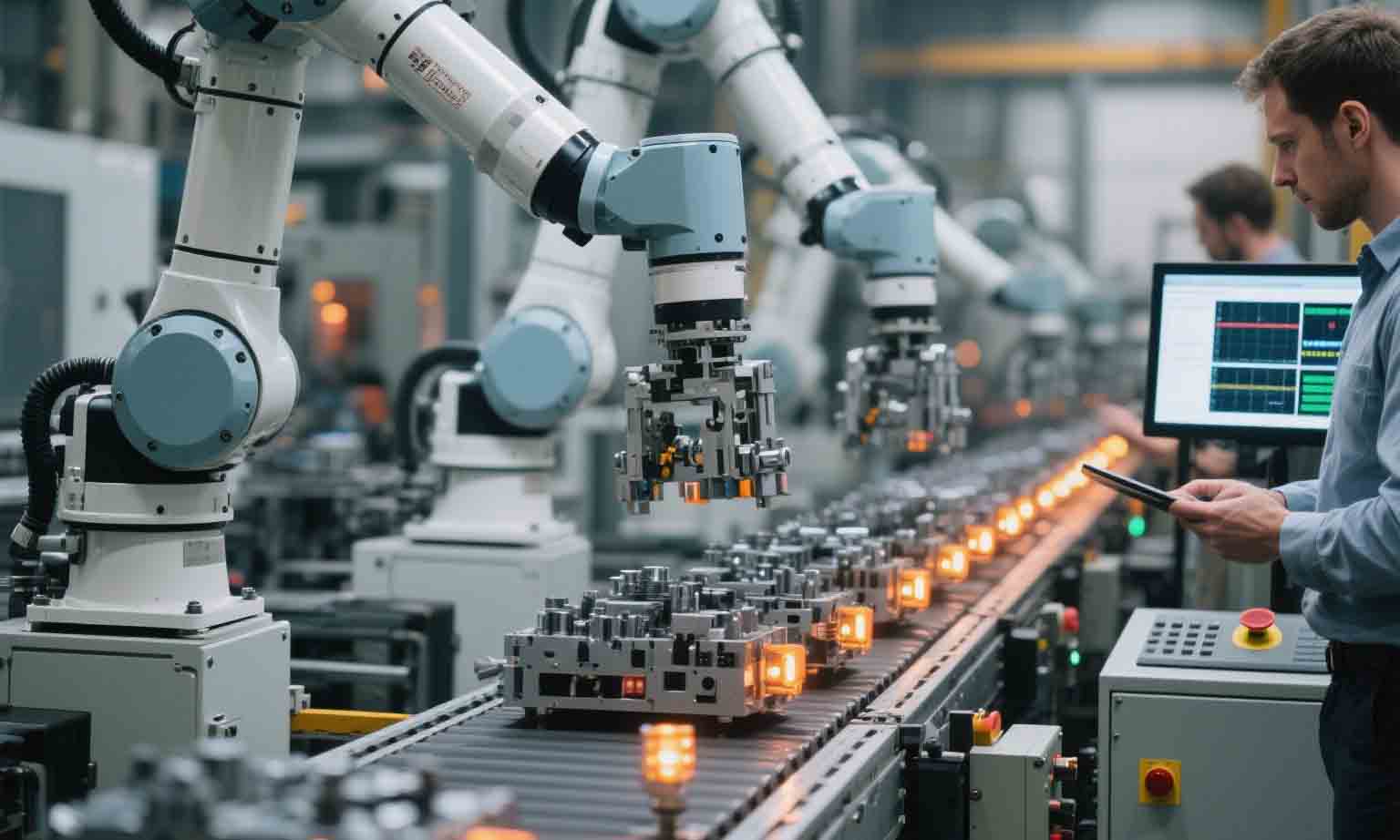AI Case Analysis: Transforming Industries and Beyond
小薇 2025-06-17
Artificial Intelligence (AI) has emerged as a transformative force, revolutionizing numerous sectors with its ability to analyze vast amounts of data, make predictions, and automate complex tasks.
AI Case Analysis: Transforming Industries and Beyond
Artificial Intelligence (AI) has emerged as a transformative force, revolutionizing numerous sectors with its ability to analyze vast amounts of data, make predictions, and automate complex tasks. Through in - depth case analysis, we can better understand how AI is being applied in real - world scenarios, the impact it generates, and the challenges it encounters.
Healthcare: IBM Watson for Oncology
IBM Watson for Oncology is a prominent example of AI's application in healthcare. Oncology, the study and treatment of cancer, is a complex field with a wealth of medical research, treatment guidelines, and patient - specific data. Watson for Oncology was trained on thousands of medical journals, textbooks, and patient records. It uses natural language processing and machine - learning algorithms to understand a patient's medical history, genetic information, and current symptoms.
Doctors can input a patient's case details, and Watson will quickly analyze the data, cross - reference it with the latest medical knowledge, and provide evidence - based treatment recommendations. In one case, a patient with a rare form of cancer was misdiagnosed initially. Watson analyzed the patient's genetic markers and compared them with a global database of similar cases. It then suggested a targeted therapy that was not initially considered by the medical team. This case not only led to an improved treatment plan for the patient but also demonstrated Watson's ability to sift through complex data and identify relevant treatment options.
However, the implementation of Watson for Oncology also faced challenges. One major concern was the trust factor. Medical professionals were initially skeptical about relying on an AI system for critical treatment decisions. Additionally, ensuring the accuracy and timeliness of the data used for training and analysis was crucial. Any inaccuracies in the data could lead to incorrect recommendations, potentially endangering patients.
Finance: Fraud Detection by PayPal
In the finance industry, PayPal has leveraged AI to enhance its fraud - detection capabilities. With millions of transactions occurring daily, detecting fraudulent activities in real - time is a daunting task. PayPal's AI - based fraud - detection system analyzes a multitude of data points for each transaction, including the transaction amount, location, time of day, the payer's historical spending patterns, and device - related information.
Machine - learning algorithms are trained on vast historical datasets of both legitimate and fraudulent transactions. These algorithms learn the patterns and characteristics associated with fraud. For example, if a transaction suddenly occurs from a location that is far from the user's usual area and at an unusual time, and the spending amount is significantly higher than normal, the system will flag it for further review. In one instance, the system detected a series of small - value transactions from a compromised account. By recognizing the abnormal pattern of these transactions compared to the account's typical behavior, PayPal was able to prevent a large - scale fraud attempt, saving both the account holder and the company from potential losses.
Despite its effectiveness, PayPal's AI - driven fraud - detection system also has limitations. False positives can occur, where legitimate transactions are incorrectly flagged as fraudulent, causing inconvenience to users. Balancing the need for strict fraud prevention with providing a seamless user experience remains an ongoing challenge for the company.
Retail: Amazon's Recommendation Engine
Amazon's recommendation engine is one of the most well - known applications of AI in the retail sector. The engine analyzes a wide range of customer data, such as past purchases, browsing history, wish lists, and product reviews. Using collaborative filtering and deep - learning techniques, it predicts the products that a customer is likely to be interested in and presents personalized recommendations on the website and in emails.
For example, if a customer has previously purchased a camera, the recommendation engine may suggest camera accessories like lenses, memory cards, and camera bags. This not only enhances the customer shopping experience by making it easier for them to discover relevant products but also significantly boosts Amazon's sales. Studies have shown that a substantial portion of Amazon's revenue comes from purchases made based on these recommendations.
However, maintaining the accuracy and relevance of the recommendations over time is a challenge. As customer preferences change and new products enter the market, the AI system needs to continuously adapt and learn. Additionally, concerns about privacy arise as the system collects and analyzes a large amount of customer data. Amazon must ensure that it complies with data - protection regulations and maintains customer trust.
In conclusion, these AI case studies highlight the diverse and impactful ways in which AI is being integrated into various industries. While AI offers significant benefits, it also comes with challenges related to trust, data accuracy, privacy, and the need for continuous improvement. As technology continues to evolve, understanding these case studies can provide valuable insights for businesses and organizations looking to harness the power of AI effectively.













